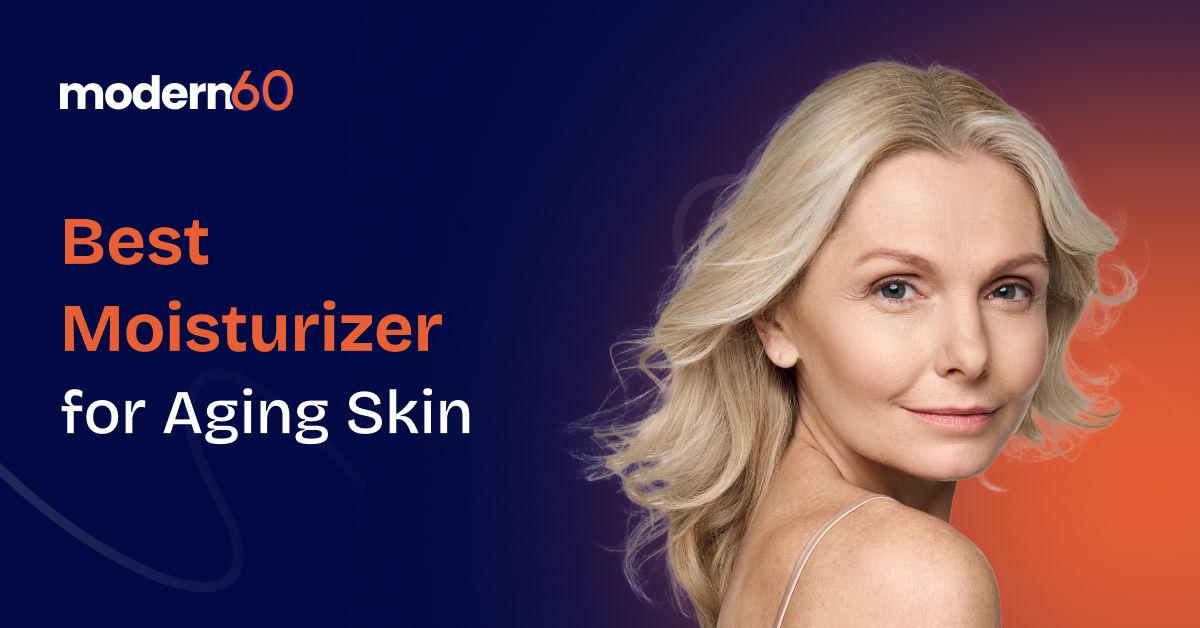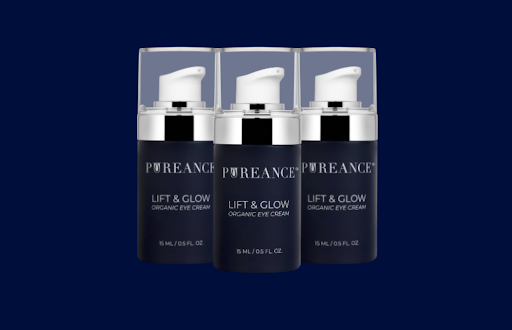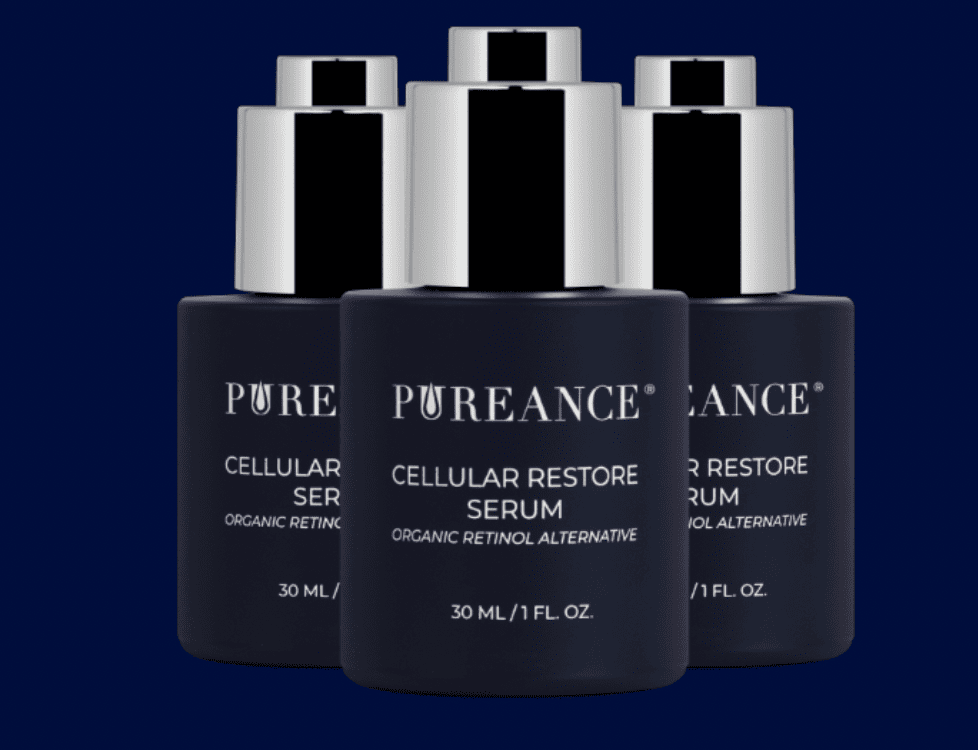Illuminate Your Eyes with Nature's Power
This Little-Known Oil Could Rebuild Your Skin's Youthful Glow Struggling With Wrinkles?
5 Best Moisturizer for Aging Skin

Last Updated on,
May 16th, 2025

A skincare routine is incomplete without a moisturizer, especially when the skin begins to show signs of aging. After all, your skin needs proper hydration to maintain its elasticity and suppleness. So, investing in the right moisturizer can address specific aging concerns, such as fine lines, wrinkles, and loss of firmness. But choosing the best moisturizer for aging skin requires some thought and consideration.
Best Moisturizers for Aging Skin
Pureance Lift & Glow
While this is an organic eye cream from Pureance, the brand claims that it is suitable for use on the entire face. The Lift & Glow is a hydrating cream that combines two natural moisturizing sources—Avocado oil and Cacao Seed Butter. Avocado oil itself contains several beneficial components, such as omega-3, omega-6, and beta-sitosterol, which are hydrating agents. Moreover, the cream contains extracts of Kakadu Plum, a rich source of vitamin C, which helps reduce the appearance of dark circles, spots, blemishes, and wrinkles.
Pureance Cellular Serum
Serums can also double as moisturizers, provided they have the right composition. Pureance’s Cellular Serum is one such product that comes with two variants—Hydration Serum and Restore Serum.
- Hydration Serum
The star ingredient of the Pureance Cellular Hydration Serum, Tremella Fuciformis Extract, provides 65.7% hydration retention, making it suitable for aging skin. It also includes a type of marine algae that helps lock in the moisture overnight.
- Restore Serum
Bakuchiol, an organic alternative to retinol, is a key ingredient in the Pureance Cellular Restore Serum. Along with its deep moisturizing benefits, this serum helps boost collagen production, and reduce fine lines and dark spots. This serum is suitable for all skin types and can be worn when out and about in the sun, too.
Augustinus Bader – The Rich Cream
A deeply hydrating moisturizer, the Rich Cream from Augustinus Bader, targets signs of aging. With the brand’s patented TFC8 technology and organic ingredients, such as Evening Primrose Oil, the cream helps retain moisture and contributes to skin regeneration. Moreover, this cream is fragrance-free and formulated without any irritants.
A.P. Chem MicroDose Magical Moisturizer
This powerful anti-aging moisturizer is made with extracts from eight adaptogenic mushrooms, including Shiitake, Tremella, and Chaga. It also contains Gamma-aminobutyric Acid (GABA), a neuropeptide that reduces fine lines and wrinkles and, over time, helps make the skin firmer.
Caudalie Premier Cru Moisturizer
This luxurious cream works to reduce wrinkles, even out skin tone, and of course, provide hydration. With its composition of 98% naturally sourced ingredients, like Micro Hyaluronic Acid, tightening sugars, and a patented formula, the cream effectively replenishes, hydrates, and restores the skin’s elasticity.
Read more: Anti-Aging Skincare Routine
What to Consider in a Moisturizer for Aging Skin?
Like any other skincare product, the most important factor to consider when choosing a moisturizer for mature skin is its ingredient list.
Hyaluronic acid
Hyaluronic acid (HA) is a powerful hydration agent with a moisture retention capacity of more than 1000 times its weight in water. Your body’s ability to naturally produce HA gradually decreases with age, making it important to look for moisturizers containing this specific agent.
Ceramides
This compound helps retain the moisture in the skin and keeps it hydrated for longer periods. This maintained hydration further reduces the appearance of fine lines and wrinkles, which are often visible when the skin is dry.
Peptides
Collagen helps maintain the elasticity of your skin. But with age, its production starts to decrease, affecting the skin’s health. Using moisturizers with peptides can prevent the effects of collagen deficiency by signaling your skin to produce more collagen and improving the skin’s elasticity.
Antioxidants
Environmental factors, such as sun exposure, extreme climatic temperatures, and pollution, speed up premature aging and cause oxidative stress. To combat their effects on your skin, using moisturizers rich in antioxidants, such as Vitamin C, niacinamide, and green tea extracts, can prove beneficial for mature skin.
Read more: How to prevent wrinkles
How to Choose a Moisturizer for Aging Skin?
There is no one-size-fits-all solution to mitigate aging skin. So, it is best to consider key factors before choosing the best moisturizer to yield the best results.
Skin Type
Skincare products often have slightly different compositions for different skin types. The same holds true for moisturizers. For instance, if you have sensitive skin, choosing moisturizers formulated with soothing ingredients, like aloe vera, can be helpful. Likewise, for dry skin, oil-based creams can be a suitable choice, whereas, for those with oily skin, water-based hydrating lotions can work wonders. So, it’s best to pick one that best suits your skin type.
Read more: How to Tighten Loose Skin
Third-party Testing and Approvals
For your own safety and well-being, it is best to pick moisturizers (or any skincare product, for that matter) that have passed third-party clinical testing. Besides that, dermatologist-recommended products are also great options for obvious reasons.
Patch Testing
If you have found the best moisturizer for your mature skin, make sure to perform a patch test on the inside of your arm. This is the simplest way to determine if the product’s ingredients suit your skin.
Easy Absorption
Easily absorbed moisturizers provide hydration and further improve skin health. This factor can also be determined in a patch test.
Personal Skin Concerns
There are moisturizers that are specifically curated to address certain skin concerns. They not only hydrate and nourish your skin but also target issues like hyperpigmentation or dark spots.
Cost
Sometimes moisturizers can be expensive. That said, if you find a product that contains all the necessary ingredients that can help combat mature skin issues, choosing one that is slightly over budget can be better in the long run.
A good moisturizer plays a crucial role in your skincare routine. Choose wisely!
FAQs
Hyaluronic acid, one of the main hydrating components of the skin, is produced naturally in the body. But around the age of 25, its production starts decreasing. So, to replenish its levels and keep the skin hydrated, it is better to start using moisturizers around that age.
Your skin faces different challenges throughout the day. So, ideally, it is better to use a lightweight moisturizer with SPF and antioxidants during the day. This protects the skin from oxidative stress caused by environmental factors, such as pollution and UV rays. At night, you can apply a heavier moisturizer with reparative components, such as retinol or its organic alternatives.
Retinol is a powerful compound derived from vitamin A that effectively helps reduce wrinkles, dark spots, and acne. But it is not really a necessary component for moisturizers unless you need to address those skin concerns. Plus, retinol is not suitable for everyone since it can irritate the skin. In such cases, it is better to use products with organic alternatives to retinol, such as bakuchiol.

- Zuri Hawkins-Jarrett graduated with her doctorate in pharmacy from The University of Georgia College of Pharmacy. She completed her residency training with Piedmont Columbus Regional in ambulatory care.
- Zuri also has a Master of Public Health degree from Emory University with a focus on Prevention Science. She has a passion for pharmacy and public health to help those in her community diagnosed with chronic conditions.




There are no comments yet